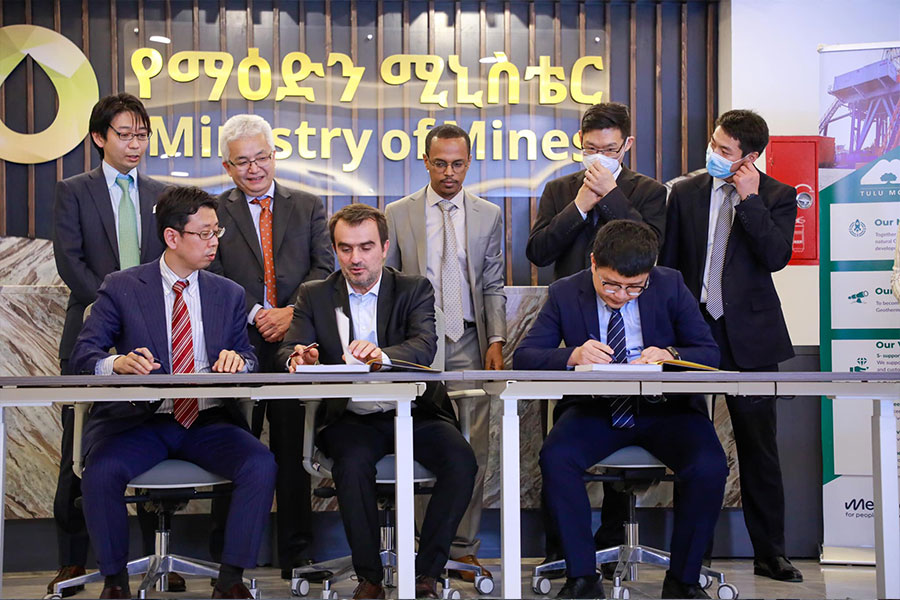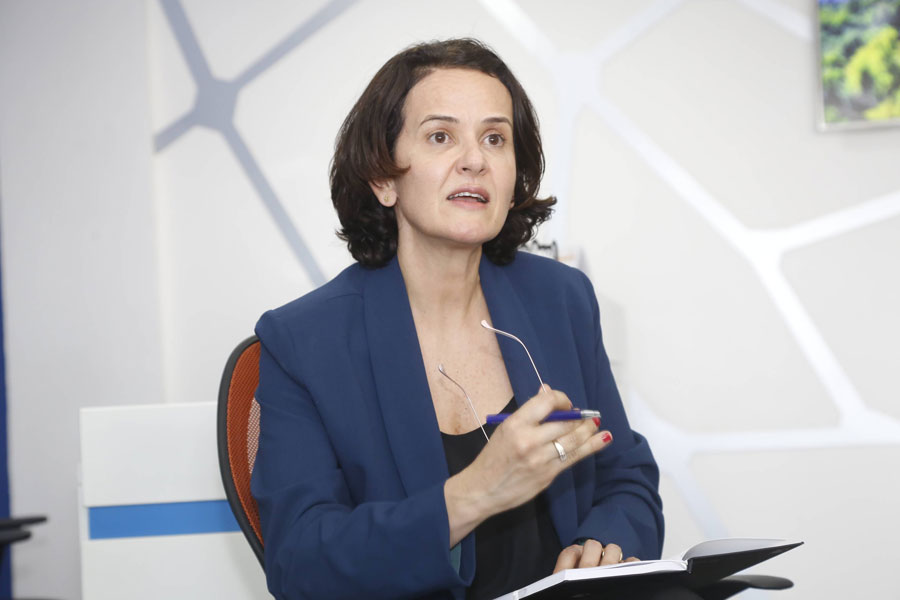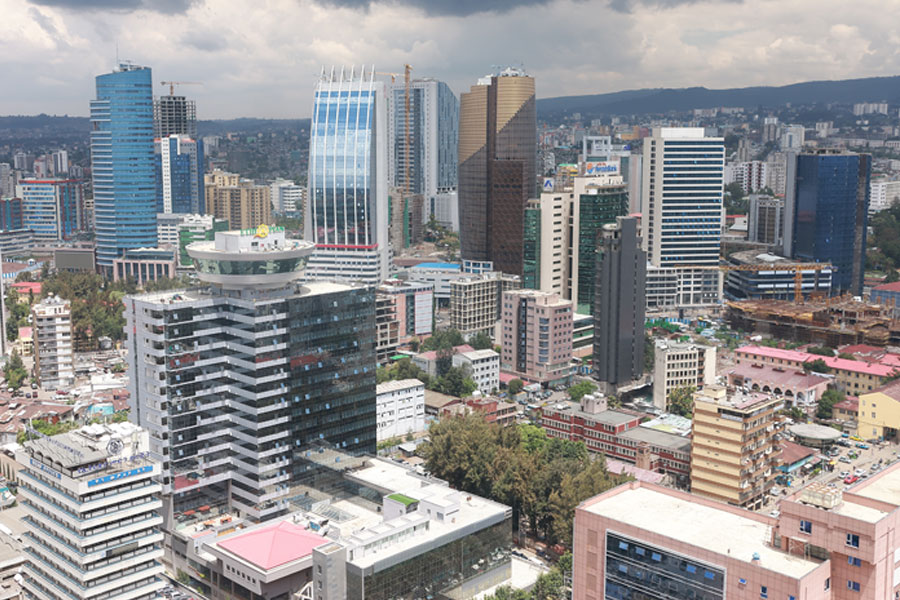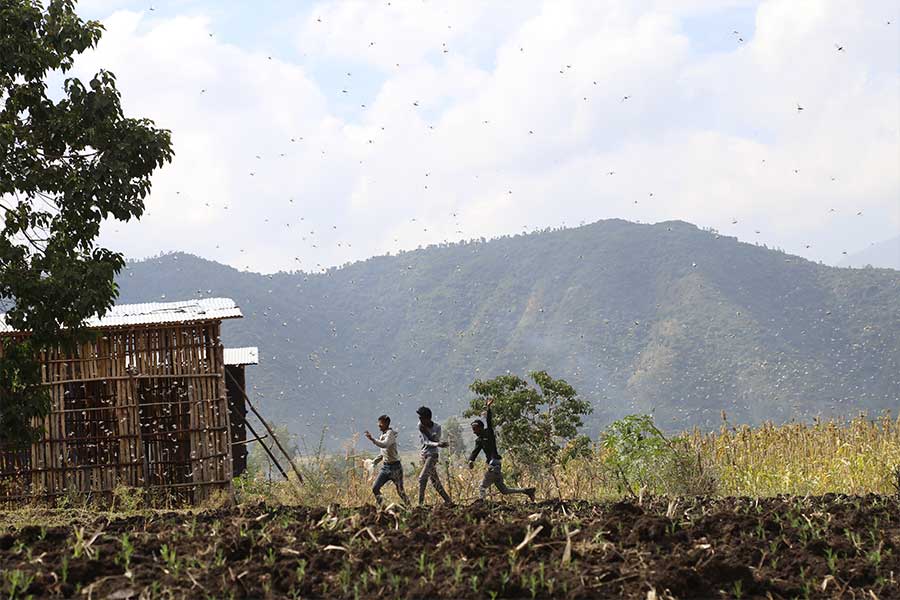
Radar | Nov 09,2019
Apr 25 , 2020
For many countries in the developed world, the Coronavirus pandemic is first a public health crisis, and then it is followed by woes in their national economies. For countries like Ethiopia where scarcity of resources, dilapidated public service and deeply entrenched poverty defines their economies, the progression is the other way around. Measures meant to be preventive have assaulted economic activities so much so that there is hardly any business that has not been affected by COVID-19.
Although slow, Ethiopian authorities are hard at work trying to respond with a series of policy measures in providing some forms of an economic stimulus package, meant to put cash back in peoples' pockets, gossip observed. There is a national task force for COVID-19 responses under the chair of Adanech Abiebie, who also serves as the Federal Attorney General. A close political ally and comrade-in-faith with Prime Minister Abiy Ahmed (PhD), Adanech ought to be the busiest person in the administration, running multiple committees overseeing varied responses to contain the spread of the virus, claims gossip.
One of these committees formed is tasked with the job of identifying the most vulnerable in society due to the economic woes as a result of the partial quarantine imposed on the country and look into fiscal measures needed to cushion them from the impending hardship, according to gossip. Comprised of senior officials from the central bank, as well as ministries of Finance and Revenues, the committee may have completed and submitted its recommendations to the Council of Ministers, gossip disclosed.
The committee argues that a series of fiscal and monetary measures should be taken in order to see the administration's response to safeguarding public health succeed, claims gossip. While doing so, businesses affected by COVID-19 responses, including exporters, need to be sheltered from their eventual losses, which may subject them to layoff their labour, according to the recommendation. Its authors want to see landlords who lose income by keeping their tenants and those who donate money to help the fight against the virus should be supported in a series of tax returns, claims gossip.
The largest docket the authors of the recommendation see in the fiscal response is part of the 78 billion Br the federal government claims from corporate, value-added and excise taxes in the 15 years beginning from 2005, gossip revealed. Of this, close to 34 billion Br is registered in the government books as receivable, while the balance is either appealed or under litigation, gossip disclosed. No less than 80pc of this money is owed by companies in the manufacturing and construction sectors, as well as wholesale trading, industries massively hit by the COVID-19 impact, claims gossip.
The committee has identified a little over 3,000 companies that owe the government 8.1 billion Br in tax in the 10 years beginning with 2005, says gossip. The intention is to forgo this amount altogether, including the interest and penalties, gossip disclosed. An additional over 3,200 taxpayers have been identified for owing the government a total of 25 billion Br in tax (including interest and penalty) for the four years before 2019, revealed gossip. A series of recommendations were made to forgive the interest and penalties should the taxpayers agree to pay one-quarter of the principal within a month and the remaining 75pc in a year, claims gossip. Should they agree to pay the full amount within a month, the administration is recommended to forgo an additional 10pc from the principal, according to gossip.
The committee wants to see the administration be kind to the landlords who choose to keep tenants - whether residential or businesses - while the latter remain unable to pay rent, claims gossip. If these recommendations are endorsed by the Council of Ministers, property owners will end up having the 30pc tax imposed on their income from rent waived for a year, gossip claims. Should companies decide to pay their labour during the months of April and May but let them stay home, they could be spared of paying income tax for four months, including the amount they contribute to the 11pc in a pension fund, disclosed gossip.
While exporters should be allowed to retain 30pc of forex from 90 days to six months, the administration is also advised to provide liquidity in the form of fast-tracked loans to small and medium companies that are not usually the best friends of the big banks, claims gossip. The authors of the recommendations foresee the state-owned Development Bank of Ethiopia (DBE) becoming a financial vehicle to channel these funds, gossip claims.
However, the most generous prize will go to businesses that acquired properties from the state through the privatisation process, claims gossip. Those who have not serviced their arrears within the five years of acquiring properties have been subjected to painful amounts of interest and penalties; they may soon see an opening not only to extend the time to pay the principal, but the total amount in penalties and interest will be forgiven too, gossip claims.
PUBLISHED ON
Apr 25,2020 [ VOL
21 , NO
1043]

Radar | Nov 09,2019

Viewpoints | Mar 23,2024

Viewpoints | Jan 03,2021

Radar | Sep 06,2020

Fortune News | Apr 02,2022

Exclusive Interviews | Nov 06,2021

Fortune News | Mar 30,2024

Radar | May 25,2019

Commentaries | Nov 04,2023

View From Arada | Dec 26,2020

My Opinion | 131770 Views | Aug 14,2021

My Opinion | 128153 Views | Aug 21,2021

My Opinion | 126099 Views | Sep 10,2021

My Opinion | 123721 Views | Aug 07,2021

Dec 22 , 2024 . By TIZITA SHEWAFERAW
Charged with transforming colossal state-owned enterprises into modern and competitiv...

Aug 18 , 2024 . By AKSAH ITALO
Although predictable Yonas Zerihun's job in the ride-hailing service is not immune to...

Jul 28 , 2024 . By TIZITA SHEWAFERAW
Unhabitual, perhaps too many, Samuel Gebreyohannes, 38, used to occasionally enjoy a couple of beers at breakfast. However, he recently swit...

Jul 13 , 2024 . By AKSAH ITALO
Investors who rely on tractors, trucks, and field vehicles for commuting, transporting commodities, and f...

Jul 5 , 2025
Six years ago, Ethiopia was the darling of international liberal commentators. A year...

Jun 28 , 2025
Meseret Damtie, the assertive auditor general, has never been shy about naming names...

Jun 21 , 2025
A well-worn adage says, “Budget is not destiny, but it is direction.” Examining t...

Jun 14 , 2025
Yet again, the Horn of Africa is bracing for trouble. A region already frayed by wars...

Jul 6 , 2025 . By BEZAWIT HULUAGER
The federal legislature gave Prime Minister Abiy Ahmed (PhD) what he wanted: a 1.9 tr...

Jul 6 , 2025 . By YITBAREK GETACHEW
In a city rising skyward at breakneck speed, a reckoning has arrived. Authorities in...

Jul 6 , 2025 . By NAHOM AYELE
A landmark directive from the Ministry of Finance signals a paradigm shift in the cou...

Jul 6 , 2025 . By NAHOM AYELE
Awash Bank has announced plans to establish a dedicated investment banking subsidiary...